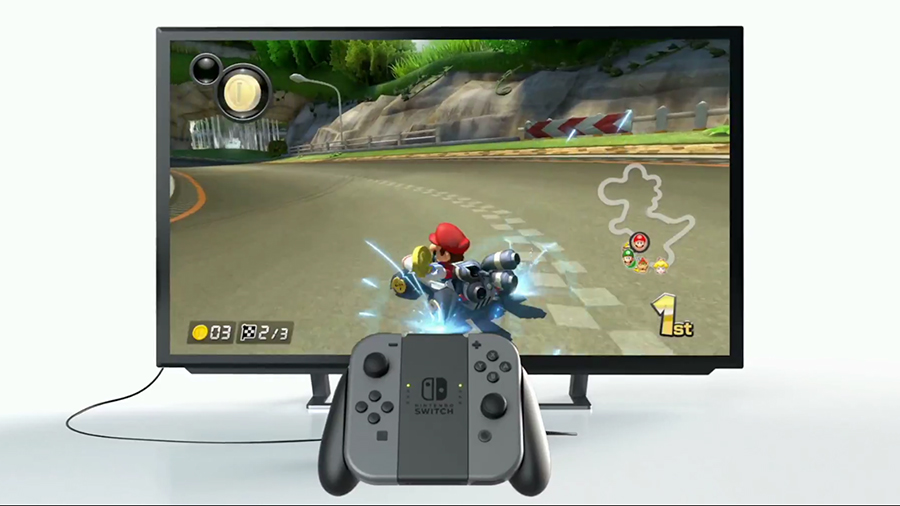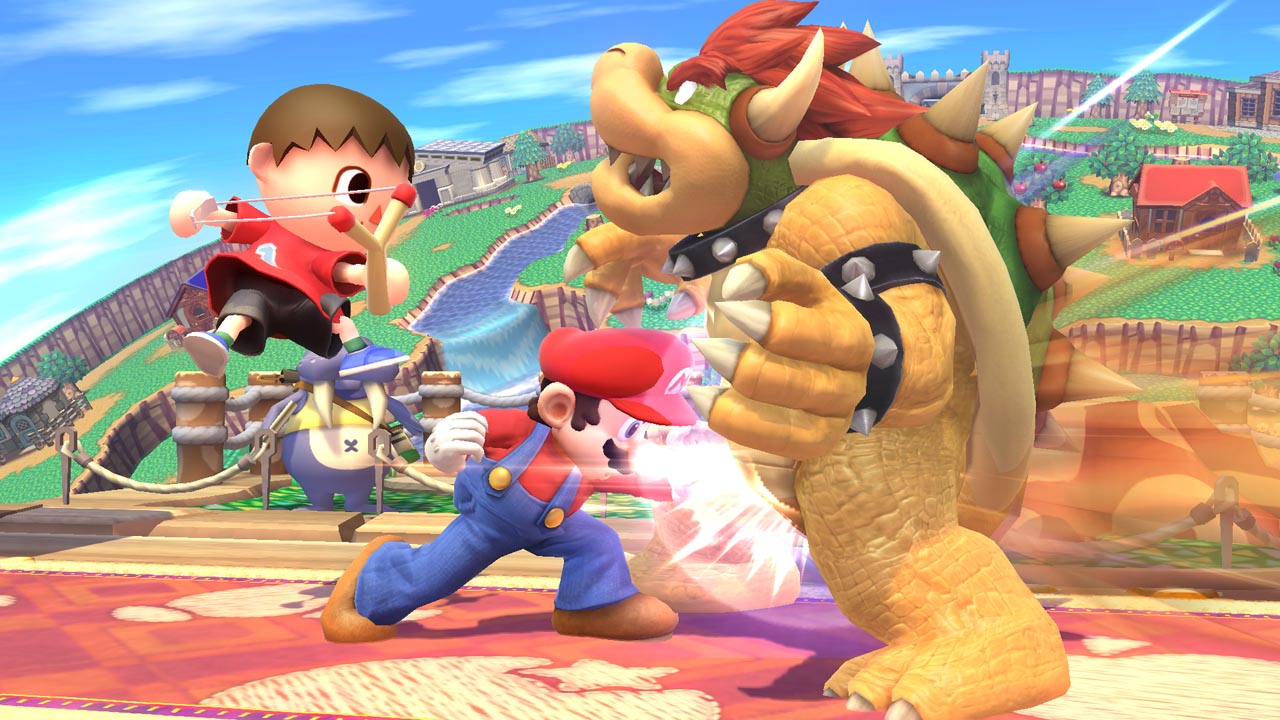Why Nintendo Switch’s new online service worries me
Opinion: With the Switch, Nintendo is messing up online yet again

Sign up for breaking news, reviews, opinion, top tech deals, and more.
You are now subscribed
Your newsletter sign-up was successful
Nintendo has, since the late ‘90s era of PlayStation vs. N64, felt years behind its competitors when it comes to cutting-edge gaming technology. Sony’s PlayStation could play CD-ROMS while Nintendo’s N64 used stubborn cartridges. The original Xbox had robust online multiplayer while Nintendo GameCube had … I don’t know, Phantasy Star Online? PS3 and Xbox 360 offered burgeoning app stores, easy-to-manage friends lists and party systems. The Wii offered Miiverse.
You get the picture. Nintendo hasn’t had the best time with hardware even if its always-solid software has kept it close to gamers’ hearts.
And while I wish things are going to be different this time around, with the Nintendo Switch Nintendo is messing up its online offerings yet again.
Before we push onto why I see it that way, let’s clear up a few facts: Yes, the Nintendo Switch will finally join the 21st century by offering a comprehensive, subscription-based online platform like its competitors, Microsoft’s Xbox One and Sony’s PS4.
But based on what we know so far from the announcements made, the Switch’s online features will fall well short of what modern gamers expect.
The Switch will launch with an online service in beta – which itself is weird – before transitioning to a paid subscription service in autumn 2017.
And it will only go downhill from there.
Sign up for breaking news, reviews, opinion, top tech deals, and more.

Nintendo’s nostalgia drip feed
Nintendo’s struggles over the last decade have shown that less does not equal more when it comes to online subscription services. The Wii U failed to re-capture the Wii’s market-defying, anomalous success, while meanwhile Nintendo’s competitors embraced fully-featured online platforms and thrived.
True, Nintendo has said the console comes with a new subscription service that grants free monthly games, much like competing services on Xbox and PlayStation, but unlike with those services you don’t get to keep the games after the month is up, making those “free games” effectively more like paid, month-long demos.
They might have even debuted a subscription service – similar to PlayStation Now – that would make entire libraries of old school nostalgia greatness available for a monthly fee
If the company understood what its fans want, the Switch’s online side would offer every Nintendo game from the NES to the N64 (and maybe even the GameCube), none of which are difficult to emulate on newer hardware, as proved by the multitude of Windows and OS X PC emulation software available with a quick Google search.
They might have even debuted a subscription service – similar to PlayStation Now – that would make entire libraries of old school nostalgia greatness available for a monthly fee.
Instead the new system is objectively worse than what PlayStation Plus and Xbox Live Gold offer. Subscribers will get one free Super Nintendo or NES game per month, but those games will need to be purchased if you want to continue playing after that one month period.
It’s extremely cool that Nintendo plans to upgrade some retro games with online multiplayer functionality – hello, Super Mario Kart online – but compared with services that grant subscribers ownership of multiple free modern games per month this is just sad.
Shockingly this all seems deliberate on Nintendo’s part, as it fits perfectly as part of Nintendo’s baffling overall strategy of putting its best offerings on a slow, slow drip feed that just barely keep fans from dying of thirst.
What's on offer?
So, you might wonder, aside from the temporary classic games what else will Nintendo’s online service offer me? For one, you’ll get to bypass the paywall that Nintendo says will block online play in its games, similarly to how PlayStation Plus and Xbox Live Gold subscribers can play online multiplayer on their respective systems.
That’s right, you’ll get basic online functionality. Well, sort of.
Nintendo has failed more often than not to make its online multiplayer even functional, much less fully-featured. Seriously, go try playing Super Smash Bros. Wii U online and see how long it takes before you rage-quit due to simple lag.

Maybe (hopefully!) the Switch will be better. Charging for online play removes any excuse Nintendo might have should the service’s performance prove poor, and Nintendo surely deserves the benefit of the doubt.
Switch online subscribers will also get special offers and discounts on other digital Nintendo products – a potentially good idea considering how much PlayStation fans like PSN deals but, to me, seems like just one more way Nintendo’s trying to get at your wallet.
As far as actual tangible positives, though, that’s all Nintendo’s given us.
What’s scary is that many of the features that come built into years-older competitor systems like the Xbox 360 and PS3 won’t actually be available on the Switch itself, but relegated to a companion phone app.
From game invites to party chat, you’ll need to keep a smartphone nearby to use some of the Switch’s most important online features, and it sounds like you’ll be out of luck if for whatever reason you can’t.
Silver linings at the end of Rainbow Road
Yet, despite severely lacking basic functionality, a strange one-month rental of old games policy and nebulous performance, I’m not pressing the panic button just yet. There are a few potential silver linings in all this. First and foremost, we don’t yet have the price. How much the Nintendo Switch’s online service costs will be a big factor.
PlayStation Plus costs $60 per year (£40, AU$70), while Xbox Live Gold costs the same in the US and £40/AU$80 overseas. If Nintendo went significantly cheaper than these, all the janky and missing features could be, if not exactly justified, at least excusable.
At least the horrible friend code system, which required users to exchange randomly generated 12-digit codes to become friends, is gone for good with the Switch – despite their unwelcome return in Super Mario Run, the smartphone game Nintendo launched just last month.
But then, Nintendo’s prime directive has long been to ignore what the competition is doing and look inward for inspiration
The other good news is that Miiverse and Streetpass, the annoying failed experiments that to this day plague the Wii U and 3DS, won’t return on Switch either. Thank goodness.
The reaction to Nintendo’s future online offerings has been mostly negative, and understandably so. What Nintendo is doing is incredibly bizarre, given how easy it would seemingly be for the company to simply copy its competitors’ existing systems that work much better. But then, Nintendo’s prime directive has long been to ignore what the competition is doing and look inward for inspiration.
Sometimes, as was the case with the Wii, it's the decision to be Nintendo-y that pays off in the end. But the Wii was a decade ago, and Nintendo’s had plenty of failures in between then and now – maybe it’s time for a different strategy?
Michael Rougeau is a former freelance news writer for TechRadar. Studying at Goldsmiths, University of London, and Northeastern University, Michael has bylines at Kotaku, 1UP, G4, Complex Magazine, Digital Trends, GamesRadar, GameSpot, IFC, Animal New York, @Gamer, Inside the Magic, Comic Book Resources, Zap2It, TabTimes, GameZone, Cheat Code Central, Gameshark, Gameranx, The Industry, Debonair Mag, Kombo, and others.
Micheal also spent time as the Games Editor for Playboy.com, and was the managing editor at GameSpot before becoming an Animal Care Manager for Wags and Walks.
